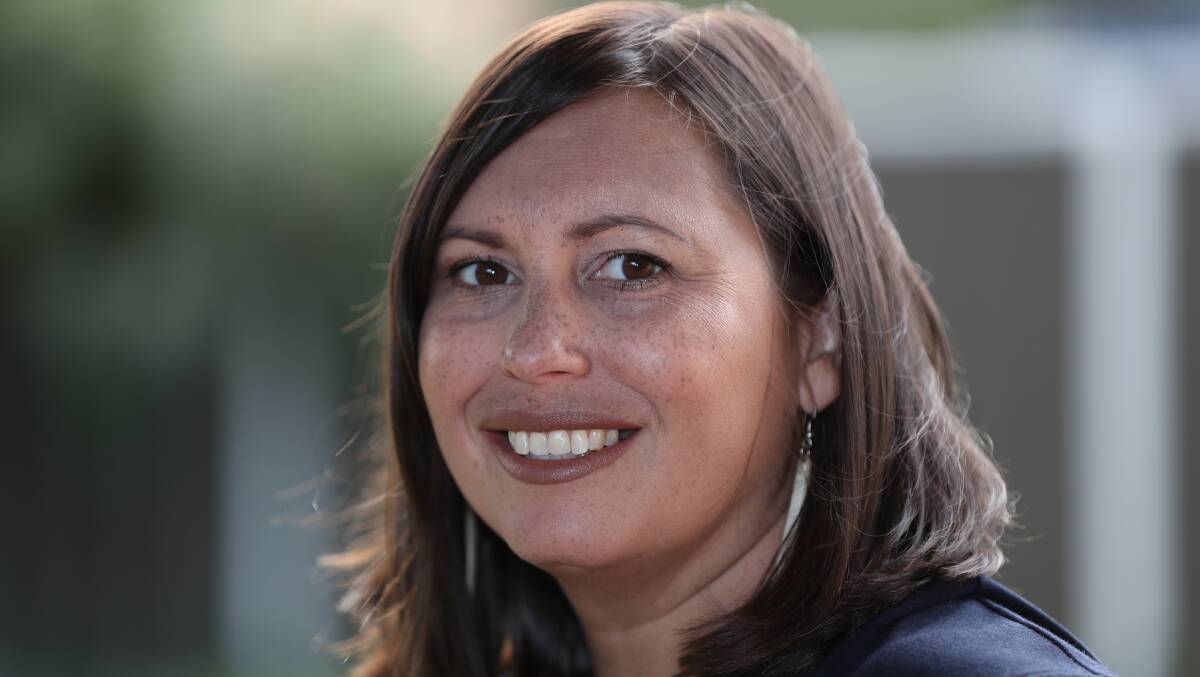
An Indigenous public health expert says the Voice to Parliament offers the opportunity to address the health inequality that sees Aboriginal and Torres Strait Islander people die up to nine years younger than other Australians.
Subscribe now for unlimited access.
$0/
(min cost $0)
or signup to continue reading
Dr Summer May Finlay is a senior lecturer in Indigenous health at the University of Wollongong and a Yorta Yorta woman who lives on Dharawal country in Wollongong, with a history working for a range of organisations, including those in the Aboriginal community-controlled health sector.
"I see the Voice as an opportunity for Aboriginal and Torres Strait Islander people to have a collective input and advice on all things, policy and legislation, that impact Aboriginal and Torres Strait Islander people at a Commonwealth level, and at the moment we don't have that," Dr Finlay said.
The latest Closing the Gap report from the Productivity Commission, released in July, shows only four of the 17 targets are on track to being met.
Indigenous men have a life expectancy 8.6 years shorter than non-Indigenous men, while the gap for women is 7.8 years.
Dr Finlay said the Closing the Gap strategy could have achieved more had it been designed with the input of Aboriginal and Torres Strait Islander people from the beginning.
But she believes the Voice offers an opportunity to address some of these failings.
"We know that each of our communities are a little bit different, while there are some commonalities, and having Aboriginal and Torres Strait Islander people being able to speak on behalf of those communities to understand the differences and similarities will get a more nuanced approach to healthcare in," she said.
"And if we are actually providing that nuanced approach, we have better outcomes.
"It won't happen overnight. We know that health inequality takes a long time to address, but if we don't start addressing it now, we're going to continue seeing high rates of death and disability, which quite frankly is unacceptable in a first world country."
Numerous health organisations have come out in support of the Voice, including the Public Health Association of Australia (of which Dr Finlay is a member), the National Aboriginal Community Controlled Health Organisation, the Royal Australasian College of Surgeons, and the Australian Medical Association, among others.
Dr Finlay said this support demonstrated how important the Voice was to the health sector.
On Tuesday, September 19 Dr Finlay will take over the @WePublicHealth account on X (formerly Twitter), which posts about the Voice and health.
While the "no" campaign asserts the Voice will cause division in Australian society, Dr Finlay believes a result against the Voice would be the very thing that sows disharmony.
She said not all no voters were racist, but she feared that those who were would only be emboldened if the October 14 referendum did not pass.
"We're actually going to end up with a society that is more divided and poorer for it, with Aboriginal and Torres Strait Islander people bearing the brunt of that, i.e. greater impact on our mental health because of it," Dr Finlay said.
She said she was "really, genuinely concerned" about what would happen if the referendum did not pass, saying it would set back Aboriginal and Torres Strait Islander relations by generations.
As well as the Voice, Dr Finlay said, she wanted to see treaty and truth-telling, the other two elements of the Uluru Statement from the Heart.
"Quite frankly, I don't think either are going to get up if we can't get this over the line," she said.
She said governments "can't always be trusted" - she worked for the former National Congress of Australia's First People, which folded after federal government funding was cut - but that was why the Voice was important.
"Governments can't always be trusted, which is why it needs to be in the constitution because we will always be able to hold them to account... They will always have a voice, regardless of who's in power," Dr Finlay said.
She urged people to find out about the Voice from sources like Reconciliation Australia or the Uluru Statement website, and know what they were voting on.
"If we're in a position in 50 years' time that we are now, people are going to regret voting no, just because they didn't know, they didn't inform themselves," Dr Finlay said.
Reading this on mobile web? Download our news app. It's faster, easier to read and we'll send you alerts for breaking news as it happens. Download in the Apple Store or Google Play.


